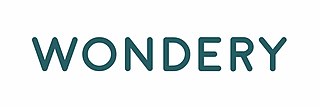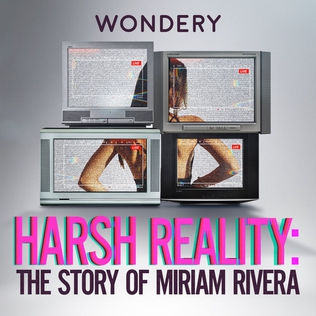Related Research Articles

Phreaking is a slang term coined to describe the activity of a culture of people who study, experiment with, or explore telecommunication systems, such as equipment and systems connected to public telephone networks. The term phreak is a sensational spelling of the word freak with the ph- from phone, and may also refer to the use of various audio frequencies to manipulate a phone system. Phreak, phreaker, or phone phreak are names used for and by individuals who participate in phreaking.

An emergency telephone number is a number that allows a caller to contact local emergency services for assistance. The emergency number differs from country to country; it is typically a three-digit number so that it can be easily remembered and dialed quickly. Some countries have a different emergency number for each of the different emergency services; these often differ only by the last digit.

A payphone is typically a coin-operated public telephone, often located in a telephone booth or in high-traffic outdoor areas, with prepayment by inserting money, swiping a credit or debit card, or using a telephone card. In the 20th century, payphones in Spain and other countries took locally-sold tokens instead of legal-tender coins.

A telephone booth, telephone kiosk, telephone call box, telephone box or public call box is a tiny structure furnished with a payphone and designed for a telephone user's convenience; usually the user steps into the booth and closes the booth door while using the payphone inside.
A collect call in Canada and the United States, known as a reverse charge call in other parts of the English-speaking world, is a telephone call in which the calling party wants to place a call at the called party's expense. In the past, collect calls were only possible as an operator-assisted call, but with the introduction of computer-based telephone dialing equipment, it is now possible to place a collect call without using an operator, which is called automated operator services (AOS) as opposed to Home Country Direct (HCD).

A telephone call or telephone conversation, also known as a phone call or voice call, is a connection over a telephone network between the called party and the calling party. Telephone calls started in the late 19th century. As technology has improved, a majority of telephone calls are made over a cellular network through mobile phones or over the internet with Voice over IP. Telephone calls are typically used for real-time conversation between two or more parties, especially when the parties cannot meet in person.

A conference call is a telephone call in which someone talks to several people at the same time. The conference call may be designed to allow the called party to participate during the call or set up so that the called party merely listens into the call and cannot speak.
A ringback number is a telephone number for a telephone line that automatically calls the line that the call was placed from, after the caller has hung up. The typical use of this facility is by telephone company technicians for testing a new installation or for trouble-shooting.
Phone fraud, or more generally communications fraud, is the use of telecommunications products or services with the intention of illegally acquiring money from, or failing to pay, a telecommunication company or its customers.

Phone Booth is a 2002 American psychological thriller film directed by Joel Schumacher, produced by David Zucker and Gil Netter, written by Larry Cohen and starring Colin Farrell, Forest Whitaker, Katie Holmes, Radha Mitchell, and Kiefer Sutherland. In the film, a malevolent hidden sniper calls a phone booth, and when a young publicist inside answers the phone, he quickly finds his life is at risk. The film received generally positive reviews from critics and was a box office hit, grossing $97 million worldwide against a production budget of $13 million.
The Mojave phone booth was a lone telephone booth in what is now the Mojave National Preserve in California. It attracted online attention in 1997 for its unusual location – it was located at the intersection of two dirt roads in a remote part of the Mojave Desert, 12 miles (19 km) from the nearest paved road and miles from any buildings.

John August is an American screenwriter, director, producer, and novelist. He is known for writing the films Go (1999), Charlie's Angels (2000), Charlie's Angels: Full Throttle (2003), Big Fish (2003), Charlie and the Chocolate Factory (2005), Corpse Bride (2005), Frankenweenie (2012), the Disney live-action adaptation of Aladdin (2019), the novels Arlo Finch in the Valley of Fire (2018), Arlo Finch in the Lake of the Moon (2019) and Arlo Finch in the Kingdom of Shadows (2020).

Allan Bridge was an American conceptual artist best known for his creation in 1980 of the confessional phone system known as the Apology Line. He went by the pseudonym Mr. Apology and used new technology of the time, an answering machine, to record confessions from anonymous callers.

Apology is a made for HBO original film that premiered on July 27, 1986. The movie is based on the artwork of Allan Bridge and the novel he inspired, Mr. Apology. The film was eventually released on video and syndicated to cable and network television outlets. It stars Lesley Ann Warren, Peter Weller and John Glover. The film was titled in some markets as Apology for Murder. It was the first film produced under the HBO Pictures banner.

Wondery is an American podcast network and publisher of numerous award-winning podcasts, including Dirty John, Dr. Death, and The Shrink Next Door. Wondery was founded in 2016 by entrepreneur and media executive Hernan Lopez. The company was launched with backing from 20th Century Fox. In late 2020, it was announced that Wondery had been purchased and is now owned by Amazon Music.

My Favorite Murder is a weekly true crime comedy podcast hosted by American comedians Karen Kilgariff and Georgia Hardstark. The first episode was released in January 2016. The podcast debuted at #25 on the iTunes podcast charts and peaked at #3 on April 27, 2018. Weekly episodes regularly land within the iTunes' Top 10 Comedy Podcast chart. As of 2020, the podcast gets 35 million downloads per month.

If It Bleeds is a collection of four previously unpublished novellas by American writer Stephen King. The stories in the collection are titled "Mr. Harrigan's Phone", "The Life of Chuck", "If It Bleeds", and "Rat". It was released on April 28, 2020.

The Vanished is a weekly podcast that focuses on the stories and circumstances of missing people, hosted by Marissa Jones. Most episodes feature interviews with the friends and family of the missing person, and sometimes the local law enforcement.
Marissa Bridge is an American artist. She studied painting at the Parsons School of Design in New York City.

Harsh Reality: The Story of Miriam Rivera is a 2021 podcast produced by Novel, provided by Wondery. The series is hosted by Trace Lysette and focuses on the show There's Something About Miriam and the life of Mexican transgender model Miriam Rivera.
References
- ↑ Allan Bridge Apology Project Flyer, 2017-08-04 https://upload.wikimedia.org/wikipedia/en/5/52/Bridgeflyer.jpg , retrieved 2021-03-09
{{citation}}: Missing or empty|title=(help) - ↑ "The Apology Line". Wondery - Feel The Story. Retrieved 2021-03-09.
- ↑ "Minimalistic Design Template". www.apologyline.com. Archived from the original on 2012-04-26. Retrieved 2021-03-09.
- ↑ Project, The Payphone (2019-12-09). "How I Acquired a Coveted Phone Number". The Payphone Project. Retrieved 2023-05-30.
- 1 2 Bridge, Marissa (19 January 2021). "The Apology Line". Wondery.com. Archived from the original on 2021-01-12.